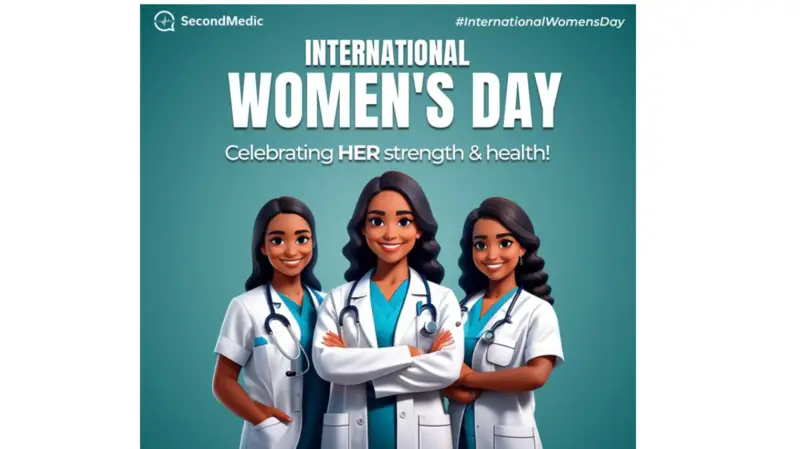- Published on: Aug 08, 2023
- 2 minute read
- By: Secondmedic Expert
Fertility Feast: 5 Delicious Superfoods For Your Journey To Conception
Are you and your partner ready to embark on a journey toward parenthood? Discover the power of a fertility diet that can potentially boost your chances of conception while nurturing your overall well-being.
Curious about the magical ingredients that support fertility for both men and women? Dive into nutrient-rich superfoods, antioxidants, and essential nutrients that lay the groundwork for reproductive health. But how does this diet work its wonders?
Can it truly enhance your fertility journey? Delve into the science behind antioxidants, as they defend against cellular stress and promote healthy sperm and egg cells. And what about specifics? Which foods should you prioritize, and are there any you should avoid? Get ready to explore a world of vibrant fruits and veggies, lean proteins, and wholesome grains while steering clear of processed temptations.
Introduction
The journey to parenthood is a remarkable one, and a crucial factor in this journey is fertility – both for men and women. While genetics and medical factors play a role, lifestyle choices, including diet, can significantly impact fertility. Enter the concept of a fertility diet, tailored to boost reproductive health and increase the chances of conception. In this blog, we'll dive into seven amazing fertility diet plans designed to support both men and women on their path to parenthood.
Fertility Diet for Men
-
Power of Protein and Antioxidants: Men aiming to enhance their fertility should focus on a diet rich in protein and antioxidants. Lean protein sources like poultry, fish, and legumes provide the building blocks for healthy sperm. Antioxidants, found in colorful fruits and vegetables, protect sperm from oxidative damage, preserving their quality and motility.
-
Omega-3 Fatty Acids for Sperm Health: Incorporating foods abundant in omega-3 fatty acids, such as fatty fish (salmon, mackerel), walnuts, and flaxseeds, can boost sperm health and motility. Omega-3s contribute to membrane fluidity and integrity, improving the overall function of sperm cells.
-
Vitamins and Minerals Matter: Essential vitamins and minerals like vitamin E, vitamin C, zinc, and selenium are vital for male fertility. Nuts, seeds, whole grains, and lean meats are excellent sources of these nutrients. They support sperm production, enhance DNA quality, and protect against oxidative stress.
Fertility Diet for Women
-
Complex Carbs and Fiber: For women, complex carbohydrates and fiber-rich foods like whole grains, legumes, and vegetables stabilize blood sugar levels. This helps regulate hormones like insulin, which can influence ovulation and fertility.
-
Folate and Iron-Rich Foods: Adequate intake of folate and iron is essential for women's reproductive health. Leafy greens, lentils, fortified cereals, and citrus fruits provide folate, which supports healthy egg development. Iron-rich foods like lean meats, beans, and spinach prevent anemia and promote overall well-being.
-
Healthy Fats and Omega-3s: Healthy fats and omega-3 fatty acids are beneficial for women's fertility. Avocados, nuts, seeds, and fatty fish provide these essential nutrients, aiding hormone production and reducing inflammation.
Boosting Fertility with a Balanced Diet
-
Load Up on Colorful Produce: A variety of colorful fruits and vegetables offer a range of antioxidants and nutrients that support both male and female fertility. Berries, citrus fruits, leafy greens, and bell peppers are excellent choices.
-
Incorporate Plant-Based Proteins: Plant-based proteins like beans, lentils, tofu, and nuts are rich in nutrients and provide an alternative to animal-based proteins. They also contribute to hormone balance and overall fertility.
-
Choose Whole Grains: Opt for whole grains like quinoa, brown rice, and whole wheat, which are not only nutritious but also help stabilize blood sugar levels. Balanced blood sugar levels are essential for hormonal health and fertility.
-
Stay Hydrated and Limit Processed Foods: Staying hydrated is crucial for reproductive health. Avoid excessive caffeine and sugary beverages. Additionally, limit processed foods high in trans fats, refined sugars, and additives, as they can negatively impact fertility.
-
Moderate Dairy and Caffeine: While some dairy products can be beneficial due to their calcium content, opt for low-fat or plant-based alternatives. Moderate caffeine intake, as excessive caffeine may interfere with conception.
Conclusion
The journey to parenthood is a shared dream for many couples, and focusing on fertility-enhancing dietary choices can be a proactive step in achieving that dream. A well-balanced fertility diet, rich in nutrients, antioxidants, and healthy fats, can significantly influence reproductive health in both men and women. From incorporating lean proteins and omega-3s to embracing colorful produce and whole grains, the choices you make on your plate can play a significant role in boosting fertility. Remember, a fertility diet isn't a guarantee of conception, but it's a supportive foundation for your journey to parenthood. Consult with a healthcare professional to personalize your diet and embark on this exciting chapter with health and optimism.
Read FAQs
A. Absolutely. A well-balanced fertility diet can contribute to improved reproductive health by providing essential nutrients, antioxidants, and healthy fats. While it's not a guarantee of conception, it creates a favorable environment for fertility in both men and women.
A. Antioxidants play a vital role in protecting cells from oxidative stress. For men, antioxidants safeguard sperm cells from damage, preserving their quality and motility. In women, antioxidants support egg health and may enhance the overall reproductive environment.
A. Processed foods high in trans fats, refined sugars, and additives should be limited. Excessive caffeine intake may also interfere with conception. While moderate dairy consumption can be beneficial, consider low-fat or plant-based alternatives.
A. A fertility diet is a long-term approach that promotes overall health and reproductive well-being. Changes may take some time to show noticeable effects. It's essential to maintain a consistent and balanced diet to reap the benefits over time. If you're concerned about fertility, consult a healthcare professional for personalized guidance.










